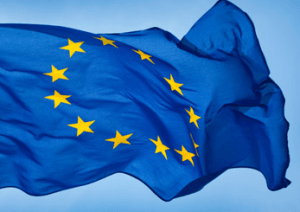[ad_1]

The exporters, drawn from small and medium-scale companies, received training from experts on the Economic Partnership Agreement (EPA) and its requirements.
The series of trainings were organised by Compete Ghana, with funding from the EU and in partnership with the Ministry of Trade and Industry under its Enterprise Export Enhancement Programme (EEEP).
The exporters who were doing business through other markets, could now enjoy direct business with the EU, through mentoring by their assigned coaches on the EPA’s requirements.
At a validation workshop for assessment and action plans for proposed interventions of the EEEP in Accra, the exporters were excited for the opportunity and commended the EU, Ministry of Trade and Industry (MOTI), and Compete Ghana for the initiative.
They raised issues with challenges associated with shipping and the difficulty in acquiring certifications that met the EU standards, as key areas that needed to be looked at.
Mr Nicholas Gebara, the Team Lead, Compete Ghana, said they were happy to facilitate the training to help the exporters to compete in the EU market effectively.
He indicated that the structuring of the EPA for Ghana would end in November and to ensure sustainability, Compete Ghana would be engaging GEPA and MOTI after building the capacity of the enterprises, to ensure the stability and capacity of companies to export.
“We strongly hope that GEPA and MOTI will take over as an institution to ensure sustainability and continuity of the programme,” he said.
Mr Raffaele Quarto, the Trade Counselor of the EU Delegation, said the Union’s market was a developed one, hence the need for exporters to know the requirements at such a level.
“You cannot simply export, because for packaging for instance, you cannot do simple packaging and send it to Europe, you need proper packaging, labelling and more importantly the quality of the products,” he added.
“The good thing is that once you have fulfilled the standards at the European level, then you can go anywhere in the world.”
Mr Gerald Nyarko-Mensah, an Expert on exports and marketing, Compete Ghana, said previous programmes dealt with groups and the sector levels, but this EEEP was centered on the individual enterprise level.
He said the emphasis was on understanding the characteristics of the individual enterprise, particularly their gaps as far as exporting to the EU was concerned.
Compete Ghana would be setting up a virtual Ghana Trade Centre (GTC), driven by an e-commerce platform and backed by a physical outsourced fulfilment centre, based on the targeted market, to create a closer relationship between exporters and their buyers, he said.
The platform would facilitate the transactions and supply process through aggregation and bulk shipment of products.
Mr Nyarko-Mensah noted that the GTC would provide information and intelligence on opportunities in the foreign markets, promote ‘Made-in- Ghana products, foster business-to-business linkages and follow up on shipments, to address post clearance issues.
He noted that market access through virtual means had become one of the fastest growing modes of entry and cost saving to enterprises, adding that variants of those had also been undertaken in areas such as Group Marketing and Group Shipment Schemes.
Source: GNA
[ad_2]
Source link
